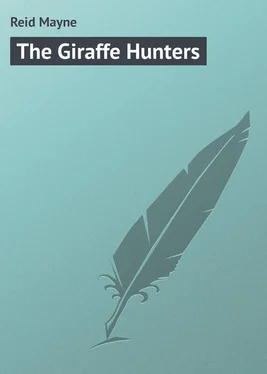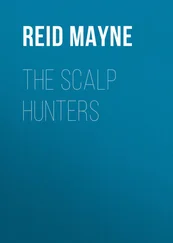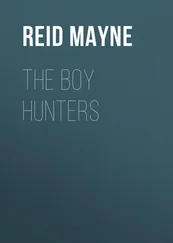Mayne Reid - The Giraffe Hunters
Здесь есть возможность читать онлайн «Mayne Reid - The Giraffe Hunters» — ознакомительный отрывок электронной книги совершенно бесплатно, а после прочтения отрывка купить полную версию. В некоторых случаях можно слушать аудио, скачать через торрент в формате fb2 и присутствует краткое содержание. Жанр: foreign_language, foreign_prose, на английском языке. Описание произведения, (предисловие) а так же отзывы посетителей доступны на портале библиотеки ЛибКат.
- Название:The Giraffe Hunters
- Автор:
- Жанр:
- Год:неизвестен
- ISBN:нет данных
- Рейтинг книги:3 / 5. Голосов: 1
-
Избранное:Добавить в избранное
- Отзывы:
-
Ваша оценка:
- 60
- 1
- 2
- 3
- 4
- 5
The Giraffe Hunters: краткое содержание, описание и аннотация
Предлагаем к чтению аннотацию, описание, краткое содержание или предисловие (зависит от того, что написал сам автор книги «The Giraffe Hunters»). Если вы не нашли необходимую информацию о книге — напишите в комментариях, мы постараемся отыскать её.
The Giraffe Hunters — читать онлайн ознакомительный отрывок
Ниже представлен текст книги, разбитый по страницам. Система сохранения места последней прочитанной страницы, позволяет с удобством читать онлайн бесплатно книгу «The Giraffe Hunters», без необходимости каждый раз заново искать на чём Вы остановились. Поставьте закладку, и сможете в любой момент перейти на страницу, на которой закончили чтение.
Интервал:
Закладка:
He pulled trigger and sprang backwards. A cloud of smoke rolled before his eyes, and, as this cleared away, he saw the leopard laid out along the earth by the side of the wounded dog, – like the latter, kicking out its legs in the last throes of death.
On looking for his companions, Willem saw that Macora and his men, having stopped at a distance of about five hundred yards off, had witnessed his victory. The chief was now hastening towards him on foot, and was soon by his side, when, pointing to the ox about half a mile away, he tried to make Willem understand that that animal had carried him unwillingly away from his friend.
Perceiving all danger was over, the others came up; when, by signs, the big hunter gave them to understand that he wanted the hide taken off the leopard. The four attendants went to work with their short assagais, in a manner that told him he would not have long to wait for a beautiful leopard skin, as a trophy of his victory, as also a memento of the danger through which he had passed.
He himself turned his attention to the wounded dog, which was still moaning on the ground, and looking at him with an expression that seemed to say, “Why do you not first come and assist me.”
Poor Smoke had sacrificed his own life to save that of his master. The creature’s back was broken, and it was otherwise severely injured. It was evident that nothing could be done for it. The dog must die, and the great heart of Groot Willem was sorely afflicted.
Turning to Macora, he observed that the chief had reloaded his musket. Willem pointed to the dog’s head and then to the gun.
The chief took the hint and raised the weapon to his shoulder.
Groot Willem turned away with his eyes full of tears, and went off in pursuit of his horse.
Chapter Fourteen.
The Lagoon
On returning to the camp, they found that Hendrik and Arend had been successful in their chase of the antelopes, and the greater part of two were cooking over a large fire.
A quantity of felled timber had been brought to the ground for construction of the kraal, and the work of building it had already commenced.
For the labour of his followers Macora would accept nothing but a small quantity of coffee, a bottle of Schiedam and some tobacco, and in the evening he took his departure, after seeing his friends safely established in their camp.
Three of his people were left with the hunters, with orders to make themselves useful in whatever way they could be employed. This addition to the company was, however, a source of great annoyance to the Bushman. Any communication made to them required the assistance of his rival, Congo.
Congo had others under him, – people to whom he gave instructions and commands. Swartboy had not, and was, therefore, very discontented with the arrangements.
“You and I must do something to-day,” said Arend to Hendrik, as they were eating their first breakfast at the new camping-place.
“Yes,” replied Hendrik, “Willem has one day the start of us in adventures, but I dare say fortune will favour us ere long.”
“She has favoured us all I think,” said Willem. “How could we have a better prospect of success? There is apparently an abundance of game; and we have found people willing to assist us in getting at it, – willing to perform most of the toil and leave us all of the sport.”
“You are quite right,” said Hendrik; “our brightest hopes could not have been crowned by a more favourable commencement, although two days ago we were repining. What do you say, Swartboy?” he added, turning to the Bushman; “are you content?”
“I berry much content, Baas Hendrik,” answered Swartboy, with an expression that did not confirm his words.
That day the young hunters, leaving Swartboy and the Kaffir in charge of the camp, made a visit to the lagoon, where they expected to find hippopotami.
They passed by the place where Groot Willem had killed the leopard, and observed that the bones of that animal, mingled with those of the faithful Smoke, were scattered over the ground, clean-picked of their flesh by the jackals and hyenas.
Half a mile farther on they reached the lagoon; and while riding along its shore, they all pulled up to listen to an unfamiliar and indescribable sound, that seemed to proceed from two dark objects just visible above the surface of the water. They were the heads of a brace of sea-cows. The animals were making towards them, uttering loud cries that could not be compared with anything the hunters had previously heard. Any attempt to kill them in the water would only have resulted in a waste of ammunition; for, with only the eyes and nose above the surface, there was no chance for a bullet to strike them with fatal effect.
The monsters showed some intention of coming out and making war; but, on getting nearer, they changed their design, and, turning about, floundered off out of reach.
Before proceeding many yards farther, they saw three other hippopotami, this time not in the water, but out upon the plain. They were browsing on the grass, unconscious that an enemy was near.
“Let us get between them and the water,” suggested Willem. “By that means we will make sure of them.”
Riding forward at a sharp pace, the hunters succeeded in this design; and, for a time, the retreat of the hippopotami appeared impossible.
Instinct does not lead these animals to flee from a foe. They only make for the water without regard to the position of the enemy.
On the first alarm, therefore, the three hippopotami started for the lagoon, going at a heavy rolling pace, and much faster than might have been supposed possible for creatures of such ungainly shape. As they ran in a direct line, the hunters were compelled to glide out of their way, or run the risk of being trodden under foot.
Hans and Groot Willem were together; and, as soon as the broad side of a hippopotamus came fairly before them, both fired at the same beast, taking aim behind the shoulder. Hendrik and Arend fired about at the same time at another.
Onward rolled the immense masses towards the river, but before reaching it the one to which Hans and Willem had devoted their attention was seen to go unsteadily and with less speed. Before arriving at the bank, it gave a heavy lurch, like a water-logged ship, and fell over upon its side. Two or three abortive efforts were made to recover its feet, but these soon subsided into a tremulous quivering of its huge frame, that ended in the stillness of death.
Its two companions plunged into the water, leaving Hendrik and Arend a little chagrined by the failure of their first attempt at killing a hippopotamus.
Hans and Groot Willem had no pretensions to military prowess, and the first was generally absorbed in some subject connected with his botanical researches. But he could claim his share in killing a hippopotamus under circumstances no more favourable than the two who had allowed their game to escape.
Chapter Fifteen.
Hippopotami
Herodotus, Aristotle, Diodorus, and Pliny have all given descriptions more or less correct of the hippopotamus, river-horse, or zeekoe (sea-cow) of the South African Dutch.
So great has been the interest taken in this animal, of which European people have long read, but never until lately seen, that the Zoological Society cleared 10,000 pounds in the year of the Great Exhibition of 1851, by their specimens exhibited in the gardens at Regent’s Park.
Hippopotami procured from Northern Africa were not uncommon in the Roman spectacles. Afterwards, the knowledge of them became lost to Europe for several hundred years; and, according to the authority of several writers, they entirely disappeared from the Nile.
Several centuries after they had been shown in Rome and Constantinople, it was stated that hippopotami could not be transported alive to a foreign country; but the progress of civilisation has refuted this erroneous hypothesis, and the harsh, heavy sound of its voice, since May, 1850, has been familiar to the frequenters of a London park.
Читать дальшеИнтервал:
Закладка:
Похожие книги на «The Giraffe Hunters»
Представляем Вашему вниманию похожие книги на «The Giraffe Hunters» списком для выбора. Мы отобрали схожую по названию и смыслу литературу в надежде предоставить читателям больше вариантов отыскать новые, интересные, ещё непрочитанные произведения.
Обсуждение, отзывы о книге «The Giraffe Hunters» и просто собственные мнения читателей. Оставьте ваши комментарии, напишите, что Вы думаете о произведении, его смысле или главных героях. Укажите что конкретно понравилось, а что нет, и почему Вы так считаете.












